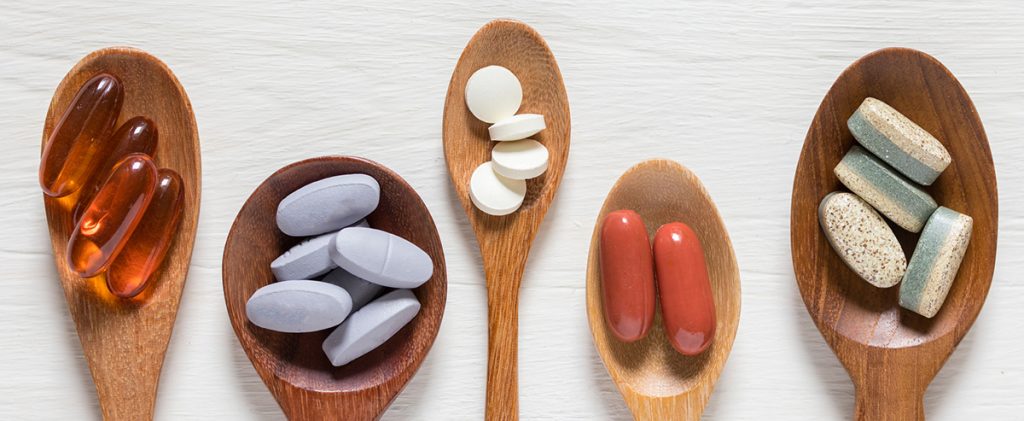Uncategorized
Why You Should Consider Taking Zinc Supplements for Health
Why You Should Consider Taking Zinc Supplements for Health
Zinc is an essential trace mineral that plays a vital role in maintaining good health. While it is found in many foods, including meat, shellfish, dairy, legumes, and seeds, many people still do not get enough zinc through their diet alone. This can lead to various health issues, as zinc is involved in numerous bodily functions, including immune system support, wound healing, and cellular repair. In this article, we’ll explore why you should consider adding zinc supplements to your health regimen and the benefits they offer.
What Is Zinc and Why Is It Important?
Zinc is a crucial mineral involved in hundreds of biological processes. It is required for the proper function of enzymes, proteins, and cells throughout the body. Despite being a trace mineral, meaning we need it in small amounts, zinc is involved in over 300 enzyme reactions and supports vital processes such as protein synthesis, DNA synthesis, cell division, and immune system function.
Since the body does not store zinc, it’s essential to get an adequate supply from your diet or supplements to maintain optimal health. Zinc deficiencies can result in a wide range of health problems, from weakened immunity to slower wound healing, and even cognitive issues.

1. Supports Immune Health
One of the most important roles of zinc in the body is its support of the immune system. Zinc plays a crucial part in the development and function of immune cells, including neutrophils, macrophages, and T-cells, all of which are essential for defending the body against infections.
Benefits for Immunity:
- Fighting Infections: Zinc helps regulate the immune response and enhances the body’s ability to fight off pathogens, such as viruses and bacteria.
- Reduces Severity of Colds: Some studies suggest that taking zinc supplements at the onset of a cold can reduce the severity and duration of symptoms. Zinc lozenges, in particular, have been shown to shorten the length of colds and reduce symptoms like sore throat and nasal congestion.
How to Incorporate:
- Taking 10-30 mg of zinc per day can provide immune support and reduce the risk of illness, especially during cold and flu season.
2. Promotes Wound Healing
Zinc plays a key role in wound healing by supporting tissue repair, collagen formation, and reducing inflammation. Zinc is involved in both the inflammatory and proliferative phases of wound healing, making it essential for recovery after an injury, surgery, or skin condition.
How Zinc Supports Wound Healing:
- Collagen Synthesis: Zinc contributes to collagen production, which is necessary for tissue regeneration.
- Inflammation Control: It helps control inflammation, which can otherwise slow down the healing process.
How to Incorporate:
- If you have a wound or are recovering from surgery, adding zinc supplements (usually around 15-30 mg daily) may help speed up healing.
3. Boosts Cognitive Function
Zinc is essential for brain function and the development of the central nervous system. Adequate zinc levels are linked to improved memory, attention, and cognitive performance. It also plays a role in modulating neurotransmitter activity, which is crucial for maintaining mental clarity and focus.
Cognitive Benefits:
- Improves Memory: Zinc is involved in neurotransmitter function, particularly in areas of the brain related to memory, learning, and mood regulation.
- Protects Against Cognitive Decline: Studies suggest that zinc may help protect against age-related cognitive decline and conditions like Alzheimer’s disease by supporting healthy brain function.
How to Incorporate:
- Taking zinc supplements of about 15-30 mg daily can support cognitive health. Higher doses may be used for individuals with a deficiency or those at risk for cognitive decline.
4. Promotes Healthy Skin
Zinc has long been recognized for its ability to support skin health. It plays a role in reducing inflammation, protecting against oxidative stress, and controlling the production of oil in the skin. Zinc also helps fight bacteria and promotes wound healing, making it beneficial for conditions like acne, eczema, and psoriasis.
Benefits for Skin Health:
- Acne Treatment: Zinc supplements can reduce the severity of acne by regulating oil production in the skin and reducing inflammation. Zinc’s antimicrobial properties also help fight acne-causing bacteria.
- Psoriasis and Eczema Relief: Zinc can reduce skin irritation and redness caused by conditions like eczema and psoriasis. It also supports skin repair and hydration.
How to Incorporate:
- For acne and general skin health, consider taking 15-30 mg of zinc daily. It may also help to apply topical zinc formulations to affected areas of the skin.
5. Supports Healthy Hormones and Reproductive Health
Zinc is crucial for hormonal balance, particularly in men and women. In men, zinc is vital for maintaining healthy testosterone levels, which support libido, muscle growth, and overall vitality. In women, zinc helps regulate menstrual cycles and supports the proper functioning of the ovaries.
Zinc’s Role in Hormonal Health:
- Men’s Health: Zinc is essential for sperm production and maintaining healthy testosterone levels. Low zinc levels are often linked to low testosterone and decreased fertility.
- Women’s Health: Zinc supports the regulation of menstrual cycles and may help reduce symptoms of PMS, such as cramps and mood swings.
How to Incorporate:
- Taking 15-30 mg of zinc daily can help maintain hormone balance and improve reproductive health.
6. Promotes Healthy Growth and Development
Zinc is especially important for children and adolescents, as it supports proper growth and development. It plays a crucial role in cell division, protein synthesis, and DNA formation, all of which are necessary for healthy physical and mental development.
Zinc’s Role in Growth:
- Growth Spurts: Zinc supports growth during puberty and childhood by assisting in cell division and tissue repair.
- Immune Support in Children: Zinc is essential for immune health in growing children, helping to protect them from infections and support overall development.
How to Incorporate:
- Zinc supplements for children should be taken under the guidance of a healthcare provider, with a typical dose ranging from 5-15 mg depending on age.
7. Supports Metabolism and Appetite Regulation
Zinc plays a key role in maintaining a healthy metabolism. It helps regulate insulin production, supports proper thyroid function, and influences appetite control. Adequate zinc levels are essential for maintaining a balanced metabolism and preventing issues such as insulin resistance and weight gain.
Metabolic Benefits:
- Supports Insulin Function: Zinc helps regulate insulin activity, which is essential for blood sugar control and metabolism.
- Appetite Control: Zinc deficiency has been linked to reduced appetite, and supplementation may help increase appetite in those who struggle with food intake.
How to Incorporate:
- Taking zinc supplements of 15-30 mg daily can support a healthy metabolism and appetite regulation.

Conclusion
Zinc is an essential mineral that plays a critical role in a wide range of bodily functions, including immune health, wound healing, cognitive function, skin health, and hormone regulation. If you’re not getting enough zinc from your diet, supplementation can offer numerous benefits for overall health and well-being.
When considering zinc supplements, it’s important to follow the recommended daily dosage (typically between 15-30 mg for adults) to avoid potential side effects. Zinc supplements are widely available in various forms, including tablets, capsules, lozenges, and powders. However, it’s always a good idea to consult with a healthcare professional before starting any new supplement, particularly if you have underlying health conditions or are on medication.
By ensuring you’re getting enough zinc, you can support your immune system, promote healthy skin, improve cognitive function, and maintain overall vitality and wellness.


